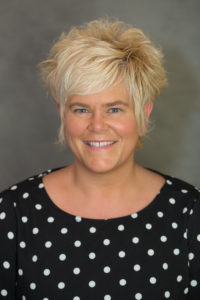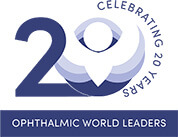An OWL Interview with Tracy Kenniff

TRACY KENNIFF, MBA, OCS ~ Practice Adminstrator, Eye & LASIK Center
What is the biggest challenge facing leaders today (in Ophthalmology or in general?)
When thinking about the biggest challenges a CEO or Administrator of an Ophthalmology practice faces today, the first thing that comes to mind is Consolidation. This is the hot topic on all levels; small single physician independent practices struggling with the uncertainty, mega practices with 45 doctors vying to acquire more practices, as well as industry where the bigger, stronger pharma companies are taking over the startups. No matter the size and nature of the business, I believe that everyone should be aware of what surrounds them when making strategic business decisions. It is not enough to focus on the objectives of your own practice. It is essential to be in tune with what is happening to the practices around you locally and stay on top of what is happening nationally, and even on a global sense.
With consolidation come concerns over financial controls. Who holds the purse strings? Will there be a promise of an endless funnel of cash to continue growth and expansion and then once committed, stipulations and limitations arise as to what you can really do. Beyond the significant questions we all have about consolidation, other constant worries include: how do we maintain our team, continue to cover payroll as we grow, how to we attract and retain qualified and experienced providers and staff to meet constant personnel shortages? How can we provide solid onboarding, training, and all that goes with maintaining a successful team to meet our main purpose and goals; quality patient care, satisfaction and experience.
Probably the hardest of all, with consolidation and restructuring is keeping your docs on track to understand that our focus needs to be on the patient, giving them the best experience possible with premier care for their needs.
What is the best advice your mentors gave you early in your career?
OWN IT! Which is exactly what I instill in my leadership team, take responsibility as if it were your own practice. Assess the needs and develop solutions on your own. Believe in yourself and your decisions. Yet, recognize your limitations and understanding when it is ok to ask for help.
Something I would also share from what I have learned over the years and branching out as a consultant, continue to focus on your strengths and build a team that is smarter than you to complement your own weakness. You do not always have to be the smartest person, you must surround yourself with intelligent people who can complement you and allow you to continue to flourish. Furthermore, no one person can be everything to everyone. I believe this is a culmination from not just one mentor but the consensus from all my mentors, many of whom I continue to surround myself with today.
What advice would you give to someone taking a leadership role for the first time?
First off, I would discuss the importance of understanding the difference between management and leadership to ensure a clear picture of what it takes to manage and lead.
Management is simply being organized and coordinating a task. If you are a good manager, you need to make sure that you are managing your team to the rules, to follow the policies and procedures of an organization. A great manager consistently improves their standards and processes for performance improvements all the while making sure they have the right team to get the job done.
Leadership is not about being a dictator or managing people or projects; rather a good leader sets an example and focuses on sharing and developing others to reach their full potential. It is about leaving the ego at the door and being the biggest cheerleader on the team, facilitating the strengths of others, to be an inspiration.
Bottom line, leadership plans long term while management is short term.
Can you share with us how OWL has helped You?
Networking.
Networking has been the catalyst behind my career for the last 20 years with putting myself out there, to ask questions, to listen to others, and to understand how the myriad of resources could help build my practice and selfishly, help build my career.
Intrigued by OWL, a select group of women collaborating to join resources from industry, physicians, and practice leaders to create awareness in technology and share best of practices within the world of Ophthalmology, I quickly realized I wanted to be a part of this elite group of women.
Once a member of OWL, we continued to expand our membership with more and more talented, accomplished women, Key Opinion Leaders who shared their wealth of knowledge for enhancing others. The members of OWL recognized that the organization had created something so much bigger than women in Ophthalmology and wanted to diversify the group and share our pool of resources without excluding anyone. Thus, we redefined our organization and became Ophthalmic World Leaders. The simple name change was so much more inviting and almost prestigious…instantly attracting exponential growth within all of Ophthalmology.
OWL has been one of the most instrumental keys to my personal success within Ophthalmology and I have created relationships both professional and personal that will continue to flourish for many years to come.
